The Department of Information Technology (IT) was established in the year 2022 with the primary objective of generating human resources with professional expertise and skills in IT. The department offers an U.G. Degree programme, B.Tech Information Technology with a sanctioned intake of 120 students. A team of highly qualified faculty members and well-equipped laboratories and excellent academic environment collectively contribute the students for acquiring technical skills and inculcate the spirit of team work and to update their knowledge in recent technological developments. The curriculum update and modernization of the labs are upgraded periodically so as to keep the students well informed about the latest trends at the global level. The careers in Information Technology deals with the design, creation, management and maintenance of the varied components of the system. The students are encouraged to be a part of professional bodies like Computer Society of India, ISTE and IEEE.
| SI.NO | NAME OF THE STUDENT | YEAR | ORGANIZED BY INSTITUTIONS / INDUSTRY | DATE & VENUE | PRIZES WON |
| 1 | Vigneshwaram M | II | University College of Engineering, BIT Campus, Trichy | 24.05.2024 | Site Craft
I Prize |
| 2 | Sanjay Kishore S | II | BigLearn, Trichy | 22.05.2024 | Workshop
Participated |
| 3 | Vigneshwaram M | II | Mookambigai College of Engineering, Pudukkottai | 26.04.2024 | Byte Battle
Participated |
| 4 | Pooja C | II | M.A.M College of Engineering and Technology, Trichy | 27.03.2024 | Tech Quiz
Participated |
| 5 | Santhiya R | II | M.A.M College of Engineering and Technology, Trichy | 27.03.2024 | Tech Quiz, Connections
Participated |
| 6 | Arafath M | II | K. Ramakrishnan College of Engineering and Technology, Trichy | 03.11.2023 | Protech
I Prize |
To become a world class technology department through innovation, excellence, discovery and to generate graduates of globally recognized innovative computing professionals.
| S.No. | Name of the Members | Designation | Position |
|---|---|---|---|
| 1 | Dr.I.Shahanaz Begum | Professor& Dean /CSE, M.I.E.T. Engineering College, Tiruchirapalli |
Chairman |
| 2 | Mr.P.Manikandan | HOD/CSE, M.I.E.T. Engineering College, Tiruchirapalli |
Co-Chairman |
| 3 | Mrs.A.Barveen | HOD/IT, AI&DS, M.I.E.T. Engineering College, Tiruchirapalli |
Co-Chairman |
| 4 | Dr.M.Vijayalakshmi | Professor/CSE Department of Computer Science and Engineering, Thiagarajar College of Engineering, Madurai | University Nominee |
| 5 | Dr.S.Nickolas | Professor/CSE Department of Computer Applications, National Institute of Technology, Tiruchirapalli | Subject Expert |
| 6 | Dr.S.Nagarajan | Associate Professor/CSE, Department of Computer Science and Engineering, Government College of Engineering - Srirangam, Tiruchirapalli | Subject Expert |
| 7 | Ms.A.K.Ayesha Shereen | Capgemini Technology Services Pvt. Ltd, Chennai | Industry Expert |
| 8 | Mr.M.Mohamed Abdullah | Adella Software & Services, Trichy | Alumni |
| All Faculty members of Information Technology Department | |||
| Designation | Head of the Department |
| Joining Date | 25.06.2009 |
| Qualification | M.E., Ph.D. |
| Nature of association | Regular |
| Experience (in Years) | 14 Years 3 Months |
| Email id | barveen.a@miet.edu |
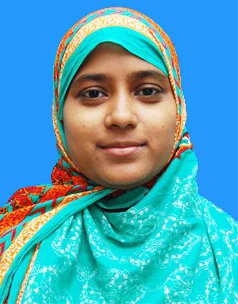
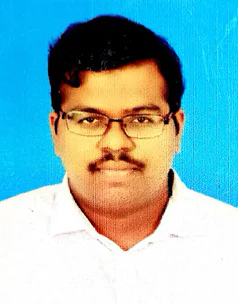
| Designation | Assistant Professor |
| Joining Date | 27.03.2023 |
| Qualification | M.Tech., |
| Nature of association | Regular |
| Experience (in Years) | 1 Year 6 Months |
| Email id | rajamohamed.s@miet.edu |
| Designation | Assistant Professor |
| Joining Date | 18.08.2021 |
| Qualification | M.E., |
| Nature of association | Regular |
| Experience (in Years) | 6 Years 8 Months |
| Email id | getsyal@miet.edu |


| Designation | Assistant Professor |
| Joining Date | 15.07.2024 |
| Qualification | M.Tech., |
| Nature of association | Regular |
| Experience (in Years) | 4 Years 4 Months |
| Email id | elakkiya.s@miet.edu |
| Designation | Assistant Professor |
| Joining Date | 15.07.2024 |
| Qualification | B.Tech (IT),M.E (CSE) |
| Nature of association | Regular |
| Experience (in Years) | 6 Months |
| Email id | rosalindgeetha.j@miet.edu |
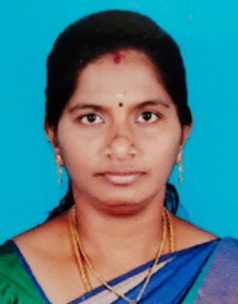

| Designation | Assistant Professor |
| Joining Date | 19.08.2024 |
| Qualification | M.Tech., |
| Nature of association | Regular |
| Experience (in Years) | 7 Years |
| Email id | rahamathunisha.n@miet.edu |
| Designation | Assistant Professor |
| Joining Date | 19.08.2024 |
| Qualification | M.E., |
| Nature of association | Regular |
| Experience (in Years) | 18 Years |
| Email id | nandhini.m@miet.edu |


| Designation | Assistant Professor |
| Joining Date | 20.11.2024 |
| Qualification | M.Tech., |
| Nature of association | Regular |
| Email id | porchelvi.d@miet.edu |
The department initiates innovative methods to make the students actively participate in the teaching-learning process through student centric learning activities such as google class room, audio/video lecturers, peer to peer learning, role play, demonstration of model, Inquiry based learning, collaborative learning etc.,
The google classroom label describes the teaching structure that has students watching pre-recorded lessons at home and completing in-class assignments, as opposed to hearing lectures in class and doing homework at home. Teachers who implement the google classroom model often film their own instructional videos, but many also use pre-made videos from online sources.
Three or four like-minded students are pooled together to form a group and to help each other in academic activities to excel in University examinations. The members of each group coordinate their efforts by producing quality output of the task given to them. Every member of the group shares his/her knowledge and ideas with other members of the group. It enhances individual’s knowledge and skills and inculcates team work and leadership quality. Peer to Peer review is obtained through which students are actively involved in their own learning and establishing a connection between the learner and the learning object.
An important key element to understand the concepts. In this activity a group of students are actively involved to demonstrate a particular concept in action. This will help the students to comprehend the topics with ease. The purpose of these activities is to ensure tracking students development, revealing the learning progress, highlighting the best work and involving the students in assessment process.
The real time working models are demonstrated in the class to connect the tangible model with the theoretical concept. This helps the students to easily understand the working principles of electrical engineering components.
Encouraging students to ask questions and investigate their own ideas that helps in improving their problem-solving skills
Collaboration allows students to actively participate in the learning process by talking with each other and listening to others opinions. Collaboration establishes a personal connection between students and the topic of study and it helps students think in a less personally biased way. Group projects and discussions are the topics . Teachers may employ collaboration to assess student’s abilities to work as a team, leadership skills, or presentation abilities
Intel Core i7, Asus Motherboard, Crucial 16GB DDR4 RAM, LEXAR 512GB SSD Hard Disk, Samsung 22″ LED Monitor, Dell USB Keyboard, Dell Optical Mouse, Sony Projector

Intel Core i7, Asus Motherboard, Crucial 16GB DDR4 RAM, LEXAR 512GB SSD Hard Disk, Samsung 22″ LED Monitor, Dell USB Keyboard, Dell Optical Mouse, Sony Projector
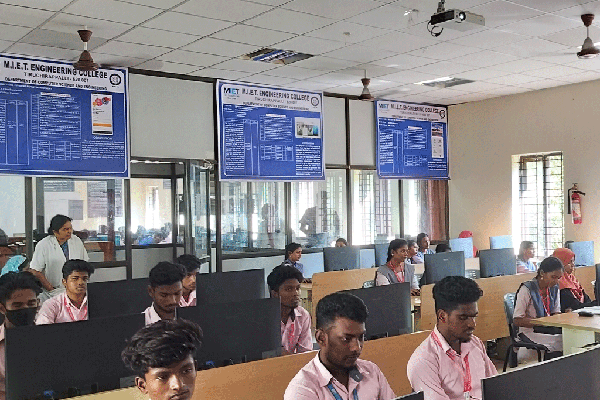

Topic: “AIoT: A hands-on Approach”
Date: 25.04.2025
Venue: “C”-Block Computer Lab
Target Audience: III Year IT
Resource person: Dr. C. Sankar Ram Assistant Professor, Anna University, BIT Campus, Tiruchirappalli.
|
PO1 |
PO2 | PO3 | PO4 | PO5 | PO6 | PO7 | PO8 | PO9 | PO10 | PO11 | PO12 | PSO1 | PSO2 |
| H | M | M | M | H | M | – | – | – | – | – | M | H |
H |


Topic: “Navigating your path to FAANG and Beyond"
Venue: ‘C’ Block Seminar Hall
Target Audience: II & III Year IT, AI&DS
Resource person: Mr. S. Amrutam Sunil
Software Development Engineer,
Amazon,
Chennai.
|
PO1 |
PO2 | PO3 | PO4 | PO5 | PO6 | PO7 | PO8 | PO9 | PO10 | PO11 | PO12 | PSO1 | PSO2 |
| H | M | M | M | H | M | – | – | – | – | – | – | M |
H |


Topic: “Full Stack Development"
Venue: B’ Block Seminar Hall
Target Audience: III Year IT, AI&DS
Resource person: Ms. V. Swetha
Full Stack Developer, ,
Big Learn,,
Tiruchirappalli.
|
PO1 |
PO2 | PO3 | PO4 | PO5 | PO6 | PO7 | PO8 | PO9 | PO10 | PO11 | PO12 | PSO1 | PSO2 |
| H | M | M | M | H | M | – | – | – | – | – | – | M |
H |


Topic: “Artificial Intelligence and Machine Learning using R Programming”
Date: 26.03.2024 / Tuesday, Time:- 10.00 am.
Venue: ‘B’ Block Seminar Hall
Target Audience: II year, IT students
Resource person: Dr. D. Senthilkumar
Assistant Professor, Department of Computer Science and Engineering,
Anna University-BIT Campus,
Tiruchirappalli.
|
PO1 |
PO2 | PO3 | PO4 | PO5 | PO6 | PO7 | PO8 | PO9 | PO10 | PO11 | PO12 | PSO1 | PSO2 |
| H | M | M | M | H | M | – | – | – | – | – | – | M |
H |
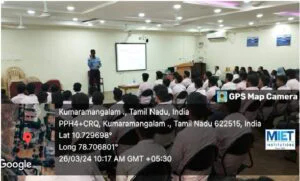

Topic: “Recent Trends in Computing Techniques”
Date: 27.11.2023 / Monday, Time:- 11.30 am.
Venue: ‘C’ Block Seminar Hall
Target Audience: II year, IT students
Resource person: Dr.M.Thirunavukkarasan
Associate Professor, School of Computer Science and Engineering,
VIT-Vellore.
|
PO1 |
PO2 | PO3 | PO4 | PO5 | PO6 | PO7 | PO8 | PO9 | PO10 | PO11 | PO12 | PSO1 | PSO2 |
| H | M | M | M | H | M | – | – | – | – | – | – | M |
H |
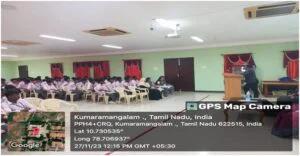
The Department of Information technology has signed an MOU with

Prof. A. Barveen
Head of the Department
Department of Information Technology
M.I.E.T. Engineering College,
Gundur, Trichy-07.
Mail ID: it.hod@miet.edu

